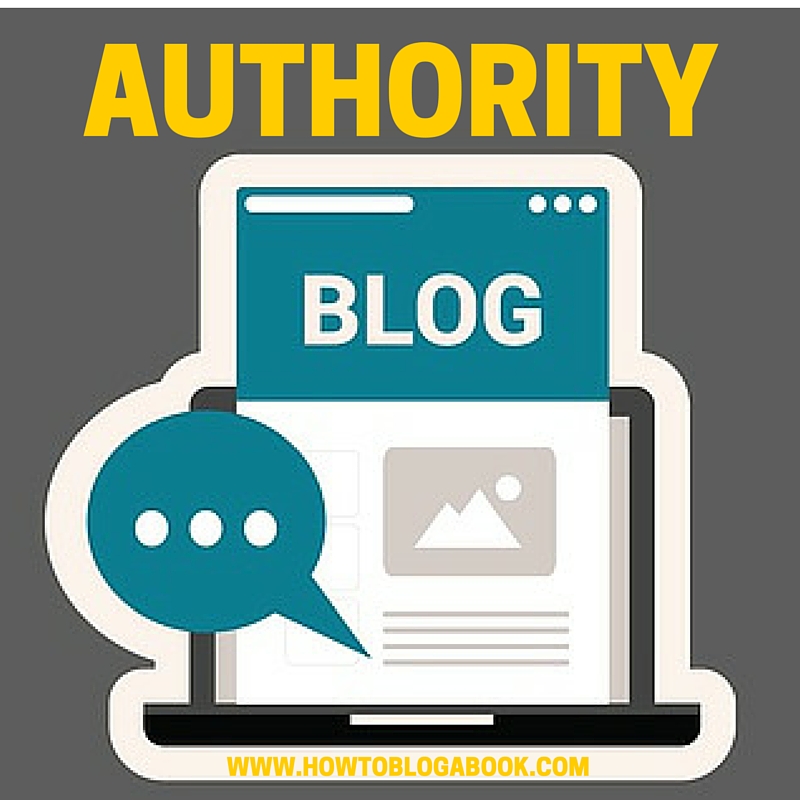
Creating an authority blog around your books can be difficult when you are new to the world of blogging. You need to learn some helpful tips to creating an authority blog for your great pieces of work. This will help your work—your posts and blogged book—get discovered and read.
First, let’s go over what an authority blog really is. It is a blog that demonstrates that you are an authority in your particular niche (example: your book(s) and what you write about).
This authority is not only for your audience and the traffic that comes to your website, but it is also for Google’s S.E.R.P (search engine results pages) for ranking purposes as well.
Still with me? Great, because that is a mouth full all in itself.
Bottom line, Google wants to see that your blog has these three characteristics:
- Does Your Domain Have Authority
- Does Your Content Show That It Is Being Engaged
- Do You Produce Fresh Content On A Regular Basis
These are the building blocks to creating not only a successful blog, but also creating an authority blog. You may want to sit down and go over these 11 Tips for Starting Your (Blogged) Book Project to get clarity on the direction of your book and blog!
Creating An Authority Blog: Giving Your Domain The Most Authority
Blogging a book is a great way to build domain authority with valuable content and expertise. However, when it comes to giving your blog the best domain authority possible, other elements factor into the equation.
To give your blog the best domain authority, consider three important things:
- Domain Purchase Length
- On-page optimization
- Mobile Friendliness
Make Your Domain a Long-Term Purchase
According to SEO by HostGator, you want to purchase a domain (URL) for at least 5 years; 10 years is best.
The reason for this is simple. Purchasing your URL for a long term proves to Google that your website is here to stay. You show commitment, which Google loves to see.
Write for Online Readers, Not Book Readers
On-page optimization is where things start to change as far as your writing style. You have to switch from writing a book to writing a blog (even though you are blogging a book). Your writing style now needs to cater to the fast pace world of the Internet.
This means you need to create blog posts that are easy for readers to scan through. Here are three tips on how to do this is:
- Use bullet points and number list
- Use sub-headings
- Keep your paragraphs only two to three lines in length
These important search engine optimization tips not only help users reading on desktop computers or laptops, but they also assist people using mobile devices to read your posts.
Make Your Site Friendly for Mobile Readers
Keeping your website mobile friendly is a must when building an authority blog.
That statistic grows everyday as new and improved smart phones make it easier for us to use the Internet from a hand-held device.
This is one of the biggest reasons why you only want to use only two to three lines per paragraph. On mobile devices, your content gets “squished” down, and those few lines now look like a long paragraph.
If you write paragraphs that contain more lines, people who view it on a mobile device find it “eye boggling.” That can detour these users from staying on your website.
Keeping your website mobile friendly is important not just for the user, but for Google as well. Google will “downgrade” sites that are not mobile friendly.
Show Engagement Through Social Signals
An authority blog shows engagement through social signals. What are social signals? When Google’s automated programs crawl your blog post, they looks for engagement.
Google has developed some great algorithms that can see the engagement happening on your blog posts. Engagement includes things like comments, time on site, and shares to social media.
Google takes into account social signals when it ranks a site. Some of these signals happen off site and on social media. When someone shares your content on social media, “likes” your post, tweets your link, comments on your content on another site, Google takes these actions into account!
All of this information is used by Google to rank your blog post in it’s search engine. You see, Google is just another company trying to please its users. So it wants to put content people have found useful at the top of the search engine results.
Google determines this usefulness by how people interact with your piece of content—on your site and even on social media sites!
An Authority Blog Needs To Have Fresh Content On A Regular Basis
Google, as well as Internet users, like to see fresh content produced on your website.
I would advise anyone who has a blog to produce one to two pieces of content per week. I personally like to publish three pieces of content a week.
When you create this content, the most important thing you can do to build an audience is to incorporate yourself into the writing. Share your experiences, share your trials, share your knowledge, and, most importantly, share your works of art.
Tell people why your work moves you, why it inspires you, and why you felt like this was a story you had to write or information you had to share. Let them know why your work means so much to you.
How a Podcast Build an Authority Blog Around Your Books
Blogging a book is a great way to build an authority blog. However, here’s another clever way to build an authority blog around your books: Start a podcast.
Go to SoundCloud, and purchase a $7 a month pro podcast. Then use this podcast to create an audio preview of your book. (Read one or two chapters.)
Use a podcast because it runs a lot like YouTube, and you can build an audience on SoundCloud. Just like videos, you can embed your podcast on your blog.
However, Google also looks at time on site when it comes to determining if your content is engaging. (How long a visitor stays on your site.) A podcast also helps with time on site because people listen to your streaming audio preview for a few minutes.
Only produce an audio preview and not your full book as a podcast. Since you only get 360 minutes of storage with the $7 SoundCloud plan, this saves space.
Then do a complete reading of your book on an MP3 file. (You can use the FREE program Audacity for this.) Upload that file to your media, just like images.
Then create a lock down page that has a digital download of the book (ebook) and an audio download of the book (audiobook). Setup PayPal buttons, and you have monetized and increased SEO standing for your website all at the same time.
Plus you have catered to the user that would love to have a choice of reading your book on your blog (or as a printed or digital book) or listening to it on audio.
Use Amazon as well to make audio and written copies of your book available and earn money that way, too.
Monetize however you like.
The point is to ensure the user experience, increasing time on site, and making money—as you create your authority blog.
About the Author
 Todd Worley, an online entrepreneur and Internet marketer, is known as the disabled blogger. His goal is to help anyone online learn more about blogging and earning income from their websiteCheck him out at toddworley.com.
Todd Worley, an online entrepreneur and Internet marketer, is known as the disabled blogger. His goal is to help anyone online learn more about blogging and earning income from their websiteCheck him out at toddworley.com.
Todd lives in the beautiful green state of Oregon with his beautiful wife and three lovely children.
Photo courtesy of pati|Fotolia.com

Thanks Nina Amir for this post. One thing more, your blog post is dim. Words are faint. Please, improve it. Thanks again!
Great article! I’m a big fan of Todd’s as he has helped me tons with my blog. I think that my writing style definitely follows some of these rules.
I’d like to talk tonight about how this relates to a “travel journal” blog and story telling in general. I’m rethinking my next entries to make them shorter and more readable. Patti Bess
This is a massive learning curve for any author. Thanks!
Hope your questions were answered tonight, Patti!